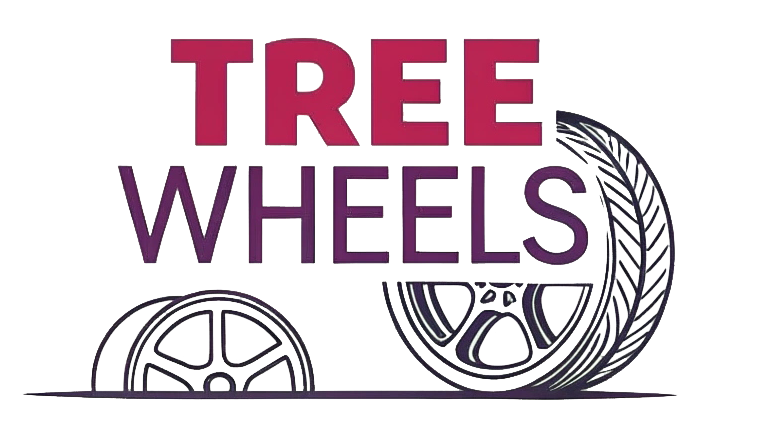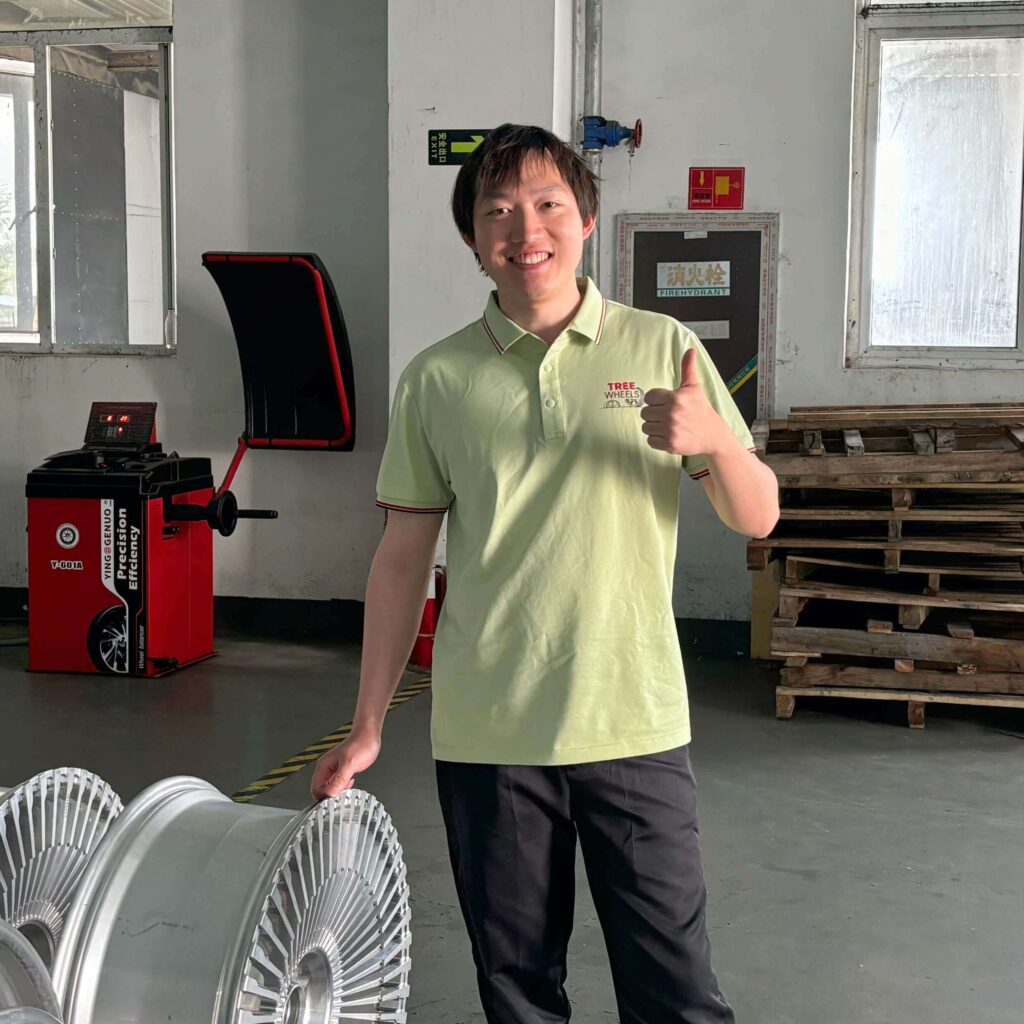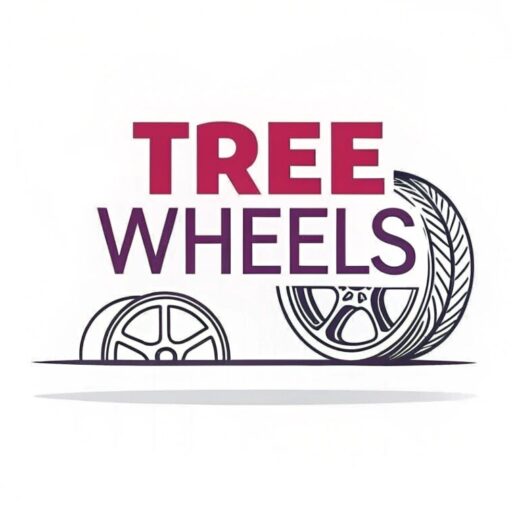Custom wheel finishes can make or break your car's appearance. Poor finish quality leads to premature degradation, dulling, and corrosion that ruins your investment and vehicle aesthetics.
Custom forged wheels are available in several finish options including painted, brushed, machined/milled, and electroplated (chrome or PVD). Each finish offers different aesthetic qualities, durability characteristics, and maintenance requirements to complement various vehicle styles.
 custom forged wheel finishes](https://treewheels.com/wp-content/uploads/2025/08/1-custom-forged-wheel-finishes-style-infographi.png)
At Tree Wheels, we understand that the finish of your custom forged wheels is just as important as their structural integrity. The right finish not only enhances your vehicle's appearance but also provides protection against environmental elements. Let me walk you through the various finishing options we offer and help you understand which might be best for your specific needs.
What to polish forged wheels with?
Polishing your forged wheels incorrectly can lead to scratches, swirls, and damage to the finish. Using harsh chemicals might even permanently ruin the appearance you paid premium prices for.
To polish forged wheels, use pH-neutral soap with microfiber cloths for regular cleaning, and wheel-specific polish products for maintenance. Avoid acidic cleaners on polished or chrome finishes, and always apply a quality wheel sealant afterward to protect the finish.
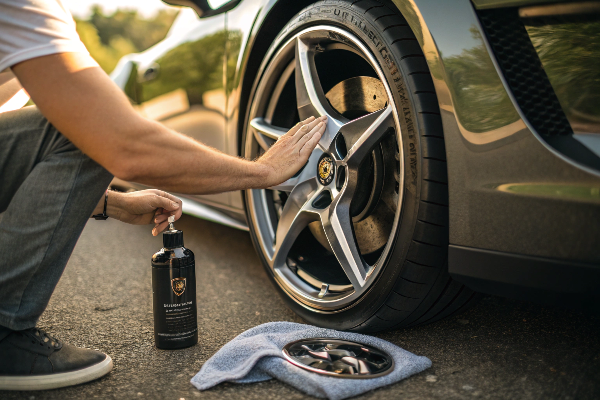
Maintaining the brilliant appearance of your forged wheels requires proper care and the right products. For our machined-finish wheels, I recommend a three-step approach that has proven effective for our clients worldwide.
| Step | Product | Method | Purpose |
|---|---|---|---|
| Cleaning | pH-neutral wheel soap | Soft microfiber cloth, warm water | Remove brake dust and road grime without damaging finish |
| Polishing | Finish-specific polish (aluminum/chrome) | Soft applicator, gentle circular motions | Restore shine and remove minor imperfections |
| Protection | Automotive wheel sealant or ceramic coating | Even application with microfiber cloth | Create protective barrier against contaminants |
The key is consistency rather than pressure – let the product do the work. For our customers in coastal areas, I strongly recommend reapplying sealant every 3-4 months, as salt air can accelerate corrosion even on premium finishes.
What material is used for forged wheels?
Choosing wheels made from inferior materials can lead to safety risks, reduced performance, and wasted money on replacements when they crack or fail prematurely under stress.
Forged wheels are primarily manufactured from 6061-T6 or 7075-T6 aluminum alloys. These aerospace-grade materials offer an optimal balance of strength, weight reduction, and durability while allowing complex machining for custom designs and superior structural integrity.
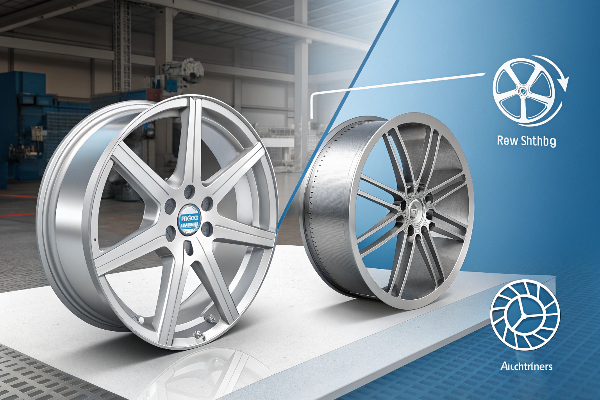
The material selection for forged wheels directly impacts their performance, durability, and safety. At Tree Wheels, we exclusively use premium aluminum alloys for our custom forged wheels.
| Property | Cast Wheels | Tree Wheels Forged | Benefit |
|---|---|---|---|
| Material | A356 Aluminum | 6061-T6/7075-T6 Aluminum | Aerospace-grade strength and durability |
| Manufacturing Process | Poured into molds | Forged under 9,000+ tons pressure | Reorganized grain structure for superior strength |
| Weight | Standard | 25-30% lighter | Improved acceleration, better braking, enhanced handling |
| Structural Integrity | Good | Excellent | Higher safety margin, can withstand greater impacts |
| Machinability | Limited | Exceptional | Allows for intricate designs and precise tolerances |
| Heat Dissipation | Average | Superior | Better brake performance, reduced thermal stress |
Our forging process fundamentally alters the metal's properties, creating a grain structure that follows the wheel's contours and significantly enhances strength while reducing weight. This delivers tangible performance benefits that serious automotive enthusiasts demand.
Do machined wheels have clear coat?
Unprotected machined wheels quickly oxidize and lose their brilliant appearance. Without proper protection, your investment deteriorates rapidly, becoming dull, discolored, and potentially damaged beyond repair.
Yes, quality machined wheels typically have clear coat protection. This transparent finish seals the exposed aluminum, preventing oxidation and corrosion while preserving the contrast between machined faces and painted/colored sections for long-lasting appearance.
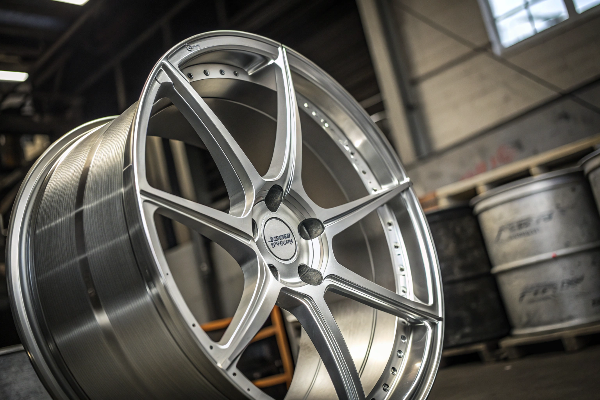
Understanding the protection systems on machined wheels is essential for both appearance longevity and maintenance requirements. Our machined wheels at Tree Wheels go through a comprehensive multi-stage finishing process.
| Clear Coat Property | Tree Wheels Standard | Industry Average | Impact |
|---|---|---|---|
| Type | Automotive-grade specialized wheel clear | Standard automotive clear | Enhanced durability under extreme conditions |
| Application Method | Multiple thin layers | Often single thick layer | Prevents cracking, enhances longevity |
| Thickness | 2-3 mils (50-75 microns) | 1-1.5 mils (25-38 microns) | Better protection without losing detail definition |
| UV Protection | Advanced UV inhibitors | Basic UV protection | Prevents yellowing and degradation from sun exposure |
| Chemical Resistance | High (brake dust, road salt, cleaners) | Moderate | Maintains appearance longer in harsh conditions |
| Curing Process | Controlled environmental chambers | Standard air/heat curing | Ensures perfect adhesion and hardness |
One common misconception I often address with clients is believing all clear coats are equal. Some manufacturers cut corners with thin or poor-quality clear coats that quickly yellow or fail. Our laboratory testing shows our clear coat maintains clarity and protection for years, even in harsh climates.
What is PVD finish on wheels?
Traditional chrome plating contains environmentally harmful chemicals and often develops bubbling and peeling issues. These defects not only ruin your wheels' appearance but can lead to corrosion that compromises structural integrity.
PVD (Physical Vapor Deposition) finish on wheels is an advanced chrome-like coating that applies microscopic metal layers in a vacuum chamber. It provides a brilliant, mirror-like appearance similar to chrome but with superior durability, scratch resistance, and environmental benefits without the weight of traditional chrome plating.
 on wheels](https://treewheels.com/wp-content/uploads/2025/08/4-clear-coat-protection-on-machined-finish-wheels.png)
PVD represents the cutting edge of wheel finishing technology, and it's an option we're particularly proud to offer at Tree Wheels. This advanced process creates a finish that rivals traditional chrome in brilliance but outperforms it in nearly every practical aspect.
| Feature | PVD Finish | Traditional Chrome | Advantage of PVD |
|---|---|---|---|
| Appearance | Brilliant mirror-like | Brilliant mirror-like | Equal aesthetic appeal |
| Layer Thickness | 0.5-0.8 microns | 25-30 microns | Maintains wheel design details better |
| Weight Added | Negligible | Significant | Preserves performance advantages |
| Environmental Impact | Eco-friendly process | Uses hazardous hexavalent chromium | Safer for environment and workers |
| Hardness (Mohs scale) | 8-9 (diamond is 10) | 6-7 | Superior scratch and chip resistance |
| Heat Tolerance | Excellent | Poor | Withstands brake heat without failure |
| Corrosion Resistance | Outstanding | Good until compromised | Longer-lasting appearance |
| Adhesion to Wheel | Molecular bond | Electroplated bond | Resistant to peeling and bubbling |
In our PVD application process, wheels first undergo thorough preparation including machining, polishing, and cleaning to ensure a flawless base surface. The wheels are then placed in a specialized vacuum chamber where metal atoms – typically a combination of titanium, chromium, and zirconium – are vaporized and bonded to the wheel surface at a molecular level.
Conclusion
Custom forged wheels offer various finishes including painted, brushed, machined, and PVD, each requiring specific maintenance for optimal longevity. At Tree Wheels, we prioritize quality in every finish, delivering wheels that enhance both your vehicle's performance and appearance.
